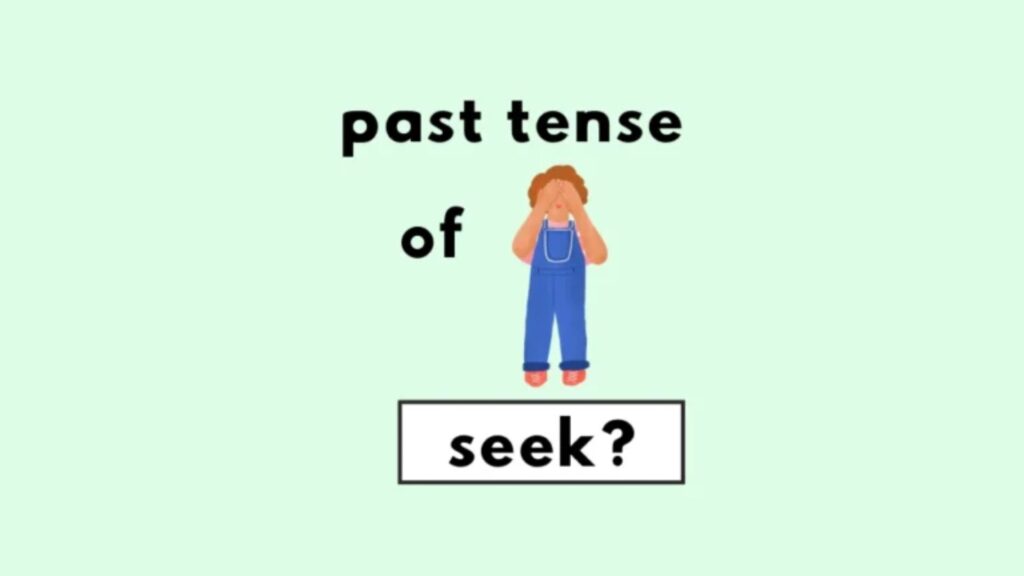Navigating the intricacies of the English language can be a challenge, especially when it comes to confusing terms like “seeked” and “sought.” Understanding the correct usage not only enhances your writing but also boosts your confidence in communication. Let’s dive into the details of these words, their meanings, and how to use them effectively.
Understanding the Correct Term: “Sought”

To start, “sought” is the past tense of the verb “seek.” You use it when discussing actions that have already occurred. For example, saying, “I sought advice” indicates that you actively looked for guidance in the past.
Example Scenario: A Formal Email
Imagine you’re writing to a colleague, Alex, about a project update. Here’s how you might phrase it:
Subject: Project Feedback
Hi Alex,
I wanted to share that I sought feedback from our team regarding the recent project. Their insights have been invaluable, and I believe we can improve our final deliverables.
Looking forward to your thoughts!
Best,
Jamie
In this email, “sought” clearly shows that Jamie looked for feedback previously.
The Incorrect Form: “Seeked”

Now, let’s clarify that “seeked” is not a correct form of the verb. While it may seem logical to use it, English irregular verbs don’t follow that pattern. The past tense of “seek” is always “sought.”
Why “Seeked” Is Incorrect
English has many irregular verbs that change forms unpredictably. For instance, “go” becomes “went,” and “swim” changes to “swam.” “Seek” belongs to this category, making “sought” the only acceptable past tense.
Practical Scenarios for Clarity
To reinforce these concepts, let’s look at a few more scenarios.
Scenario 1: Job Application
When applying for a position, you might write:
Dear Hiring Committee,
In my previous role, I actively sought opportunities to enhance my skills. I believe that my proactive approach would be an asset to your team.
Thank you for considering my application.
Sincerely,
Chris
Here, Chris correctly uses “sought” to highlight past efforts.
Scenario 2: Casual Conversation
Consider a conversation between two friends, Mia and Jake:
Mia: Did you find that documentary you wanted to watch?
Jake: Yes! I sought it out after hearing so much about it. It was worth the effort!
Jake’s use of “sought” emphasizes his past action of searching for the documentary.
Synonyms and Alternatives
Expanding your vocabulary can help you express yourself more clearly. Here are some synonyms for “seek”:
- Explore
- Pursue
- Chase
- Follow
Using these alternatives can add variety to your writing and speak to different contexts.
Understanding Contextual Usage

Using “sought” in various contexts can clarify its meaning. Here are some examples:
- After losing her job, she sought new opportunities.
- He sought help from a mentor when facing challenges.
These sentences illustrate how “sought” fits naturally into different situations.
Idiomatic Expressions Involving “Seek”
English is rich with idioms that feature the word “seek.” Here are a few:
- To seek a knot in a bulrush: Looking for something that is difficult or impossible to find.
- To play hide-and-seek: A children’s game involving searching.
- Seek pastures new: To look for new opportunities or a better situation.
- Seek revenge: To pursue retribution.
These idioms highlight the versatility of the word “seek” in various contexts.
Grammar Insights
Past Tense vs. Past Participle
Understanding the difference between past tense and past participle is crucial:
- Past Tense: “I sought” (completed action).
- Past Participle: “I have sought” (action completed in relation to the present).
Using these forms correctly can enhance clarity in your writing.
Word Origins
The word “seek” has a fascinating history. It comes from Germanic origins, and its forms have evolved from Old English and Middle English. This background highlights the complexity of English as a language.
Conclusion: Mastering “Sought”
In summary, remember that “sought” is the correct term to use when referring to the past action of looking for something. “Seeked” is incorrect and should be avoided in both writing and speech. Understanding these distinctions will enhance your communication skills and help you express yourself more clearly.
By mastering terms like “sought,” you not only improve your writing but also gain confidence in your language abilities. So, the next time you’re tempted to use “seeked,” pause and think: it’s always “sought.” Your language skills will flourish as you apply this knowledge.

